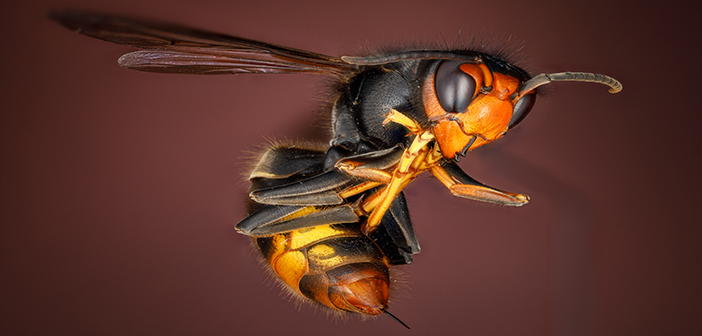The Asian hornet is smaller than our native hornet and poses no greater risk to human health than our native wasps and hornets. However, they do pose a risk to honeybees and insect pollinators.
Asian hornets are distinctive and can be identified by their very dark body, wide orange stripe on the fourth abdomen section and yellow leg ends. Any sightings can be made via the Asian Hornet Watch App.
The warning comes after 2023 saw a record number of Asian hornets found in the UK. The Animal and Plant Health Agency’s National Bee Unit attended every credible sighting, locating and destroying 72 nests in 56 locations with the majority of nests found in Kent.
The National Bee Unit continues to take action to eradicate the Asian hornet in the UK, and this spring rolled out trapping in areas where there was an increased risk that Asian hornet queens may have overwintered. The traps, which have the means to allow non-target invertebrates to escape, have been set at locations across Kent, East Sussex, Devon and North Yorkshire.
Asian hornets are not yet established in the UK. Early trapping is a key part of our surveillance for this invasive species and fundamental to our eradication efforts.
Professor Nicola Spence, Defra’s Chief Plant and Bee Health Officer, said: “By ensuring we are alerted to possible sightings as early as possible, the public can help us take swift and effective action to stamp out the threat posed by Asian hornets.
“While the Asian hornet poses no greater risk to human health than other wasps or hornets, they can damage honey bee colonies and harm other pollinators.
“Please continue to be vigilant for any Asian hornets and if you think you’ve spotted one, report your sighting through the Asian hornet app or online.”


